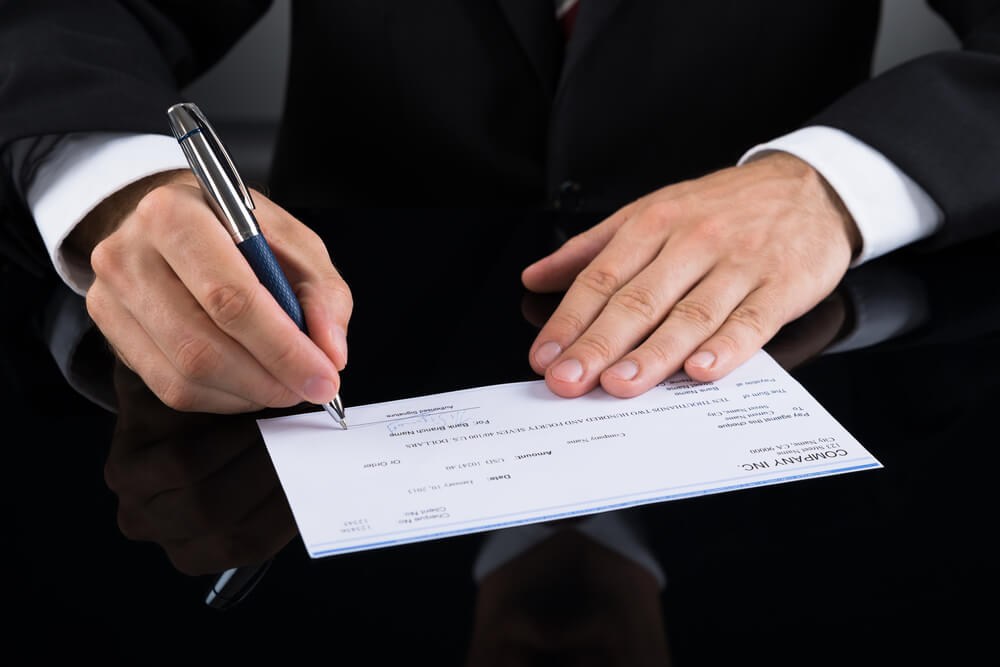Whether you’ve been an employee of a company that offers direct deposit or an organization considering direct deposit as a payment option, the handling and transferring of sensitive personal and banking information can cause concern. One of the most common questions employers ask when considering financing and payment methods revolve around a simple concept – the safety of direct deposit and the common employee question, when will my direct deposit go through. Below, we’ve outlined all the information you need to know regarding direct deposit so that your organization can make important financial decisions that meet the needs of your employees without compromising sensitive data.
Is Direct Deposit Safe?

If your organization is considering taking advantage of direct deposit, educating yourself on this payment method’s built-in safety features is important. While there are several ways to answer the question of whether a direct deposit is safe, we’re going to take a closer look at what safety features it has to offer and dispel some of the common direct deposit myths.
One of the biggest safety features direct deposit offers employers comes down to liability. According to a study done by the United States Department of Treasury, you’re more than 30 times more likely to encounter an issue with paper checks than with direct deposit. There are many different issues that individuals with paper checks face that can lead to problems cashing their check – up to and including identity theft.
Another problem many companies who only offer paper checks frequently deal with is the potential for lost or stolen checks. While many Americans seem to believe that individuals have to have a verified signature in order to cash a check, the reality is that someone can cash or deposit a check fraudulently. Plus, if an employee loses a paper check or has it stolen, issuing a stop payment and receiving a new check often incurs a significant amount of money in fees, which can be costly to the employer.
Lastly, many individuals believe that direct deposit payments arrive in their bank account through the internet. However, the US Department of Treasury explains that direct deposits initiate and arrive through a secure and encrypted electronic, interlinking banking system. Employers and employees can trace the payment from the time it leaves the employer’s payroll system until it deposits in the employee’s account.
Another important thing to note when it comes to direct deposit safety is that issues with direct deposits often occur at the bank-level. Typically, the issues employees encounter directly result from issues such as names on the bank account or misreading direct deposit information. Employers who provide their employees with a secure channel to opt-in to direct deposit systems and verify payment accounts avoid potential identity theft and risk factors.
What Time Do Checks Get Direct Deposited?

Another common question employers encounter when employees enroll in direct deposit is along the lines of “What time does direct deposit hit?” Answering this question depends on several different factors, such as:
• When in the pay cycle the employee enrolls in direct deposit
• How employers have their direct deposit accounts configured
• The banking institution the employee uses
• Whether the employer offers and allows advanced direct deposit, compared to when paper checks go out
• If the bank offers advanced processing for direct deposit
Ultimately, answering the question depends on answering another question: what time do checks get direct deposited? Companies negotiate with their payroll provider to create a payment schedule, which may vary based on the benefit packages the payroll company offers. For instance, employers may choose to pay their employees monthly, bi-weekly, or weekly, based on their agreement with the payroll company.
Part of this pay schedule also includes the time that direct deposits payout. Most companies send direct deposits to employee bank accounts approximately two days prior to their official payday. This process allows banks time to receive and certify the payments, ensuring they deposit to the correct individual.
One major perk of direct deposits is the ability to receive money early, however. Some companies choose to offer “early payday” for direct deposits. This process incentivizes employees to enroll in their direct deposit programs, providing an added layer of security for the company. Typically, this means individuals who enroll in the organization’s direct deposit program receive their payment a few days before paper checks become available.
Lastly, the other factor that heavily determines when employees receive their direct deposit depends on the financial institution they trust with their finances. Different banking organizations process direct deposits at differing speeds, and some organizations will not process direct deposits received after a certain time until the next business day. Therefore, it is important for employees to educate themselves on their specific financial institution’s policies regarding the processing of direct deposit payments.
Another way employees and employers can feel secure using direct deposit is to understand how the direct deposit process works. An organization’s payroll company receives timesheets for each employee, including any applicable deductions for health insurance, income taxes, personal elections, and mandated government withholdings. The payroll organization then authorizes its electronic banking system to remove funds from the employer’s account for the specified amount according to the employee’s timesheet.
Funds then travel through the secure, data-encrypted system from the employer’s payout account to the employee’s designated bank for approval. The employee’s banking institution goes through an in-house verification process that ensures there are no significant issues with the wire transfer. Should they encounter any problems, they often reach back out to the payroll company for clarification.
Once the financial institution determines there are no problems with the direct deposit – or clarifies any issues with the direct deposit with the payroll company and the employee – they post it to the employee’s account. Some banking institutions clear direct deposit funds for release immediately, while others withhold funds until the posting date notated in the initial direct deposit.
Therefore, the speed at which an employee receives their check depends upon the bank’s policies and procedures. However, checks that clear after the bank’s stated post-time may not become accessible until the next business day.
Compared to printing and distributing traditional paper checks, direct deposit payments are more secure, more affordable, and highly convenient. Employers often save hundreds, if not thousands of dollars a year in processing fees when choosing direct deposit payment methods over traditional paper checks. Employees rest easy knowing they will consistently receive a paycheck on the same day, at the same time.
Ultimately, both parties pay fewer processing fees and have readily accessible funds consistently. Plus, many payroll companies now incentivize employers to offer direct deposit payments or pay cards only, thanks to the ease of processing and improved safety. If you’re an employer considering moving to a direct deposit setup, or an employee with questions about how direct deposit service works, we encourage you to reach out for more information.






